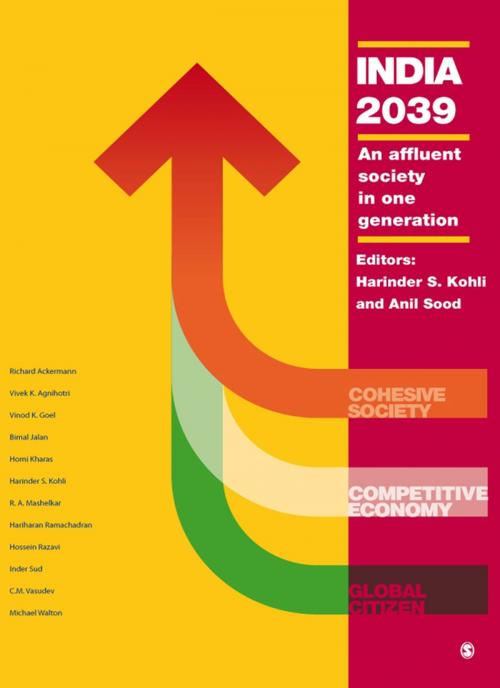India 2039
An Affluent Society in One Generation
Business & Finance, Economics, Development & Growth, Nonfiction, Reference & Language, Reference, Social & Cultural Studies, Social Science| Author: | ISBN: | 9789385985911 | |
| Publisher: | SAGE Publications | Publication: | January 20, 2010 |
| Imprint: | Sage Publications Pvt. Ltd | Language: | English |
| Author: | |
| ISBN: | 9789385985911 |
| Publisher: | SAGE Publications |
| Publication: | January 20, 2010 |
| Imprint: | Sage Publications Pvt. Ltd |
| Language: | English |
This book paints a bold and inspiring scenario of India becoming an affluent society by 2039, that is, within a generation from now. It makes a persuasive case as to why such a scenario could be plausible. Even more importantly, the book very appropriately and frankly assess the many hurdles – political, social, policy and institutional – that the country must overcome to realize this vision and lift millions of Indians from relative poverty today to enjoy the fruits of a modern and inclusive affluent society within 30 years or so. Its agenda of inter-generational issues is central to India avoiding the middle income trap that so many other countries have fallen into. However, India can successfully tackle this trap only by addressing, and addressing urgently and head on, the various facets of governance highlighted in the book.
Features unique to this study
- unlike other vertical studies that treat a topic in depth but on its own, this book tries to connect the dots between the key issues that could decide the future of Indian society
- it has a longer 30-year perspective, with a corresponding emphasis on challenges that require long gestation to address
- it offers a projection not of what will be but of what India’s potential is.
This book paints a bold and inspiring scenario of India becoming an affluent society by 2039, that is, within a generation from now. It makes a persuasive case as to why such a scenario could be plausible. Even more importantly, the book very appropriately and frankly assess the many hurdles – political, social, policy and institutional – that the country must overcome to realize this vision and lift millions of Indians from relative poverty today to enjoy the fruits of a modern and inclusive affluent society within 30 years or so. Its agenda of inter-generational issues is central to India avoiding the middle income trap that so many other countries have fallen into. However, India can successfully tackle this trap only by addressing, and addressing urgently and head on, the various facets of governance highlighted in the book.
Features unique to this study
- unlike other vertical studies that treat a topic in depth but on its own, this book tries to connect the dots between the key issues that could decide the future of Indian society
- it has a longer 30-year perspective, with a corresponding emphasis on challenges that require long gestation to address
- it offers a projection not of what will be but of what India’s potential is.















